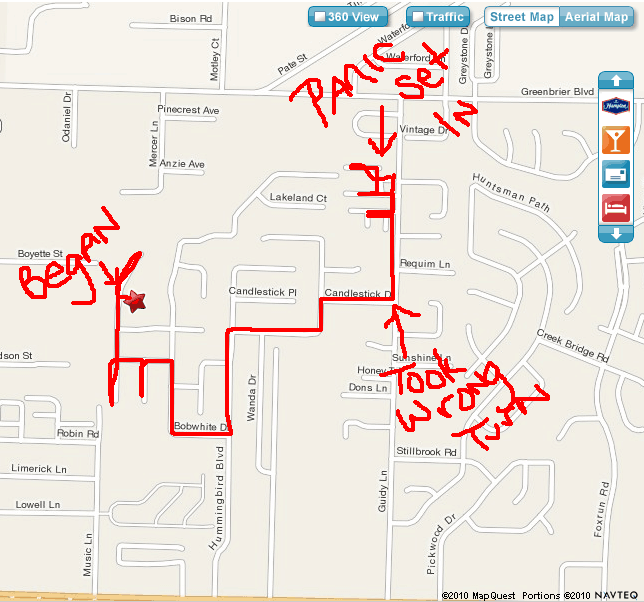10 Direct Sales Recruiting Signals Every Consultant Should Recognize (And How to Respond With Confidence)
The Art of Listening for Opportunity
Building a thriving direct sales business isn’t just about selling products—it’s about recognizing when someone is genuinely curious about what you do. These moments often come disguised as casual conversation, but for the trained ear, they’re actually recruiting signals that indicate genuine interest in your business opportunity.
Learning to identify and respond to these signals can transform your recruiting success without ever feeling pushy or sales-y. Let’s explore the ten most common recruiting signals and discover how to respond in a way that feels natural and supportive.
This post may contain affiliate links which means we receive a small commission at no cost to you when you make a purchase. As an Amazon Associate, I earn from qualifying purchases.
What Are Direct Sales Recruiting Signals?
Recruiting signals (or “green lights”) are subtle questions or comments that reveal someone’s curiosity about your business. While they might sound like friendly small talk, they often indicate deeper interest in:
- Financial opportunities
- Flexible work arrangements
- Personal growth potential
- Community and support
The key is learning to recognize these moments and respond in a way that opens the door for further conversation.
Signal #1: “How much money do you really make?”
What she’s really asking:
“Could I actually make decent money doing this?”
Why this matters:
While money isn’t usually the primary reason people succeed in direct sales, it’s often what initially draws people to explore the opportunity. She’s wondering if this could provide real financial relief or growth.
Your nurturing response:
“The beautiful thing about this business is that I control my income based on my effort. Whenever I need extra money, I have the power to give myself a raise by working a bit more. It’s incredibly empowering to have that control over my financial future.”
Signal #2: “How many parties do you do each week?”
What she’s really asking:
“How much time would this actually require, and could I fit it into my already busy life?”
Why this matters:
Everyone feels stretched thin these days. She’s trying to understand if this opportunity would overwhelm her schedule or if it could actually work with her current commitments.
Your nurturing response:
“I do about two parties a week because that’s what works best for my family’s schedule while still helping me build my business consistently. The wonderful thing is that you get to choose what works for your life.”
Signal #3: “What does it cost to get started?”
What she’s really asking:
“Is this going to break my budget, or is it actually affordable?”
Why this matters:
Many people assume starting a business requires huge upfront costs. She’s pleasantly surprised to learn about the low barrier to entry in direct sales.
Your nurturing response:
“We have several starter kit options at different price points, and there are even opportunities to earn your kit at a discount. It’s designed to be accessible, not overwhelming to your budget.”
Signal #4: “How does your spouse feel about you doing this?”
What she’s really asking:
“How do I handle potential pushback from my partner about being away from home?”
Why this matters:
This is often a real concern, especially for mothers who worry about leaving their families for business commitments. She needs to know this challenge can be navigated successfully.
Your nurturing response:
“It took some adjusting, like any change does, but we learned how important it is to support each other’s goals and dreams. When he saw how much joy and confidence this brought me, he became my biggest cheerleader.”
Signal #5: “How long have you been doing these parties?”
What she’s really asking:
Either “How long did it take you to get this good?” or “Will I look like a beginner when I start?”
Why this matters:
Starting something new can feel intimidating. She wants to know there’s a learning curve and that she won’t be expected to be perfect immediately.
Your nurturing response:
“I’ve been doing this for [timeframe], and I’m still learning new things every day that make my business stronger. The beauty is that you’re never expected to know everything right away—we’re all constantly growing together.”
Signal #6: “Do you need any help setting up?”
What she’s really asking:
This person is naturally helpful and might be perfect for direct sales!
Why this matters:
The “helper” in every group often makes an excellent consultant because they already have the serving heart that drives success in this industry.
Your nurturing response:
Accept the help graciously, then say: “Thank you so much! You know, before I became a consultant, I was always the one offering to help too. Now I love that I get to help people find products they’ll love while building my own business at the same time.”
Signal #7: “How many consultants are there here?”
What she’s really asking:
“Is there room for me in this market, or is it already oversaturated?”
Why this matters:
This is one of the biggest myths in direct sales. She needs reassurance that success isn’t limited by the number of consultants in an area.
Your nurturing response:
“We have an amazing team of women here who support each other and celebrate everyone’s success. Just like there’s room for multiple doctors or teachers in a town, there’s always room for another caring person who wants to serve others.”
Signal #8: “How or where did you receive your training?”
What she’s really asking:
“Will I actually be supported and taught how to do this well?”
Why this matters:
She may have experienced poor support in previous jobs or business ventures. She needs to know she won’t be left to figure things out alone.
Your nurturing response:
“Our company provides incredible training through webinars, conference calls, conventions, and monthly local meetings. Plus, you’ll have a whole team of experienced consultants cheering you on and ready to help whenever you need it.”
Signal #9: “All my friends say I should get into something like this…”
What she’s really asking:
“Do you think I’d actually be good at this?”
Why this matters:
She’s seeking validation from someone with expertise. While friends’ encouragement is nice, she wants to hear from someone who really knows what it takes to succeed.
Your nurturing response:
“I bet you would be amazing at this! I’d love to talk with you more about it after the party. Can you stay a few extra minutes?” Then during the party, notice her strengths and mention them afterward: “You were so wonderful at helping people find exactly what they needed—that’s exactly what we do!”
Signal #10: “I could never do a party as well as you do.”
What she’s really asking:
“You make this look so easy, but I’m worried I’m not good enough.”
Why this matters:
Your expertise has impressed her so much that she feels intimidated. She needs encouragement that she can learn these skills too.
Your nurturing response:
“Thank you so much for saying that! But here’s the thing—I would teach you to be even better than me. Everyone brings their own unique gifts to this business, and I’d love to help you discover yours.”
Putting It All Together: Your Recruiting Success Strategy
Key Principles to Remember:
Listen with Purpose: Train yourself to hear these signals in everyday conversation. They’re happening more often than you think!
Respond with Heart: Your responses should always come from a place of genuine care and support, never pressure or pushiness.
Follow Up Naturally: When you hear a signal, create space for deeper conversation by suggesting you chat after the party or event.
Focus on Service: Remember that recruiting is about helping others discover an opportunity that could change their lives, not just growing your team.
Creating Your Action Plan
- Practice Recognition: Review these signals regularly until recognizing them becomes second nature
- Prepare Your Responses: Adapt the suggested responses to match your personality and experience
- Stay Authentic: Your genuine enthusiasm for your business will be more compelling than any script
- Follow Through: When someone shows interest, make sure you follow up with care and consistency
Building Your Business Through Genuine Connection
Successful recruiting in direct sales isn’t about convincing people—it’s about recognizing when people are already curious and responding in a way that honors their interest. When you learn to listen for these signals and respond with authenticity and care, you’ll find that building your team becomes a natural extension of sharing something you truly love.
Remember, every successful consultant started with curiosity and questions just like these. Your role is to be the supportive, knowledgeable guide who helps others see the possibility that you’ve already discovered.






